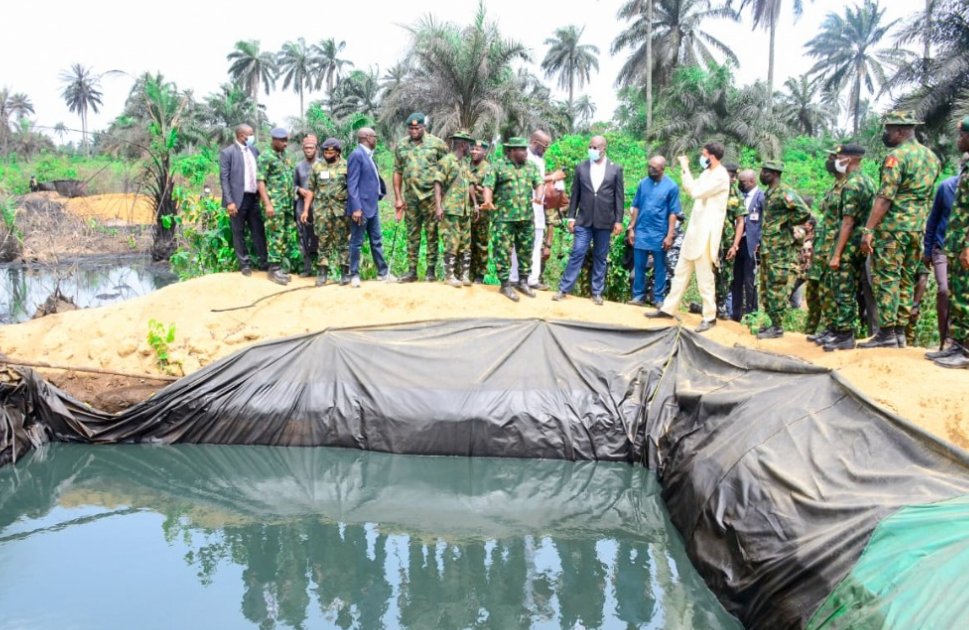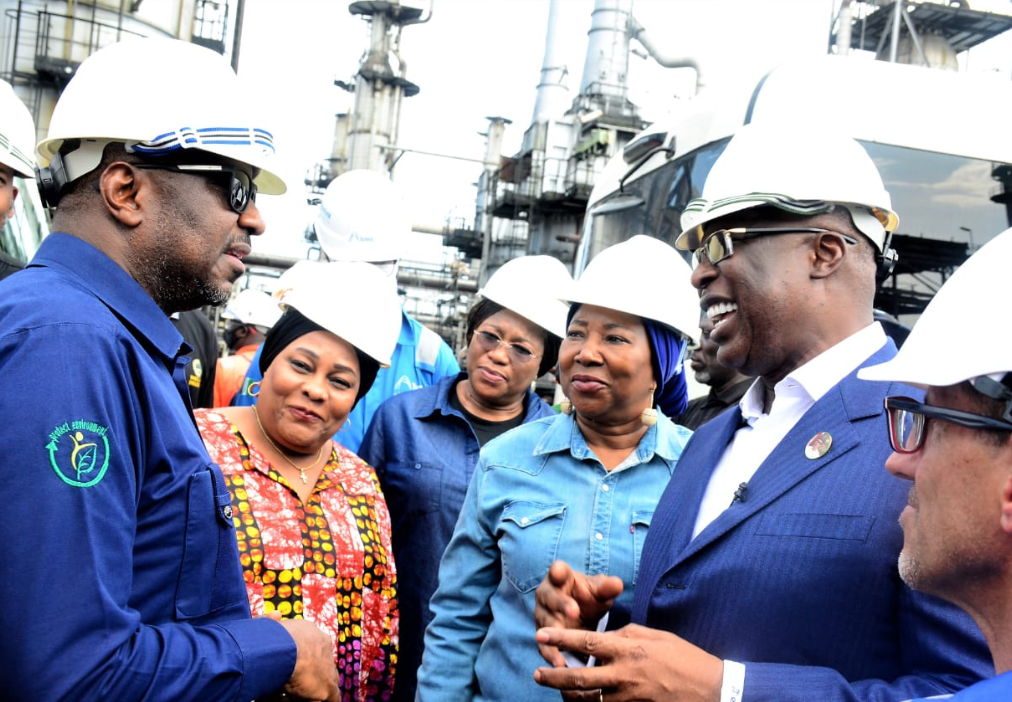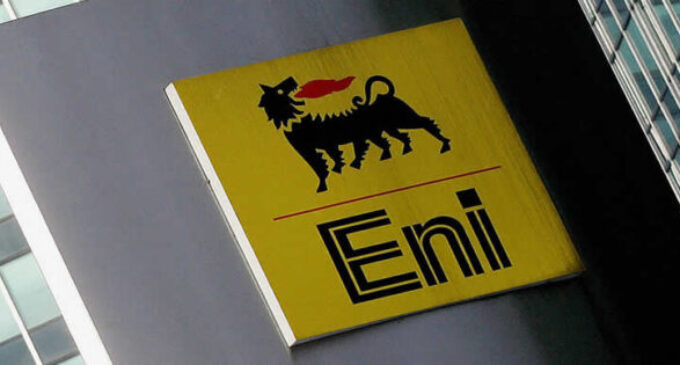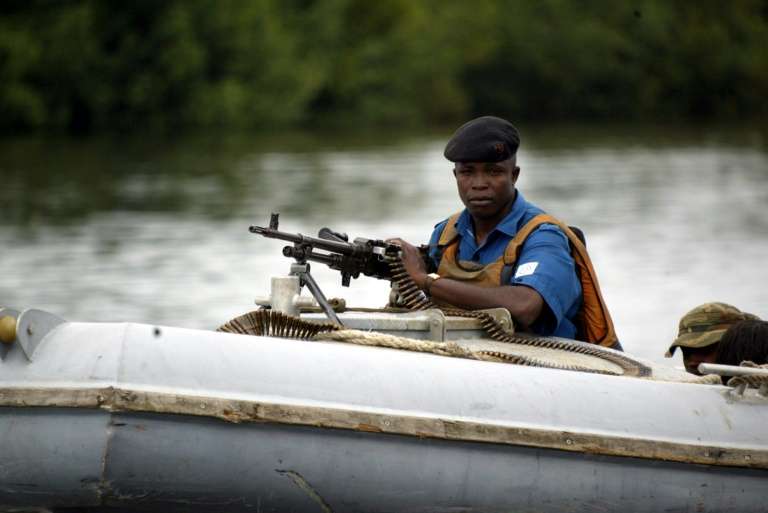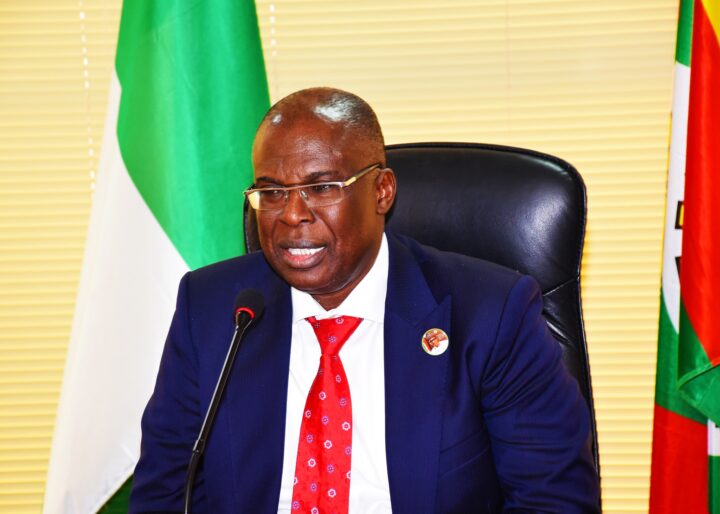There is an interesting oil industry legend on crude oil theft! During a particular peak of the theft, the government observed that as the oil revenue of the country and oil companies dwindled, mansions of some security personnel working in the Niger Delta were sprouting in Abuja.
To address the twin issues, the government ordered the numerous vessels on the high seas involved in the booming trade to be bombed because all attempts to stop the theft failed.
A legend is a traditional story sometimes popularly regarded as historical but not authenticated.
But the involvement of security officials in crude oil theft in the Niger Delta is an open secret. Timipre Sylva, minister of state, petroleum resources, admitted on Sunday that some security personnel deployed to fight oil theft were heavily involved in collaborating with those stealing the commodity in the Niger Delta.
Advertisement
Also, while the legend is difficult to corroborate because some people don’t want their names mentioned, there are reports of some of the crazy things that happened then.
Repeating 2001?
In November 2001, the federal government set up a special security committee on oil-producing areas “to address the prevailing situation in the oil-producing areas which had witnessed unprecedented vandalisation of oil pipelines, disruptions, kidnappings, extortion and a general state of insecurity”.
Advertisement
Reporting to President (Olusegun) Obasanjo in February 2002, the committee “noted that a ‘major threat to the oil industry arises from the activities of a ‘cartel or mafia’, composed of highly placed and powerful individuals within the society, who run a network of agents to steal crude oil and finished product from pipelines in the Niger Delta region.
“More than nineteen vessels used in the illegal bunkering business are reported to have been seized by the army and navy in the year to July – though it is often not clear what happens to their cargoes after that….”
Fear about effective handling of the current situation was rekindled recently when the navy told a house of representatives committee that they arrested 45 vessels last year and 15 so far this year and handed them over to the Economic and Financial Crimes Commission, EFCC, so it cannot account for the cargoes of the vessels.
Zainab Ahmed, finance minister, who was at the sitting, acknowledged the renewed efforts of the federal government to stop the illicit business, but she said she was not aware of any receipts from the sale of stolen crude.
Advertisement
Worried oil producers want some transparency around the whole exercise to instil confidence in the industry, plagued by several issues, including declining investment and production.
“There has been too much talk already. We know where the problem lies, so we need swift action before the government’s plan becomes complicated again,” an indigenous oil producer said. “We have heard stories of arrested vessels disappearing before.”
The fresh attempt
After a slow reaction to the crisis with an audit of exports of oil producers, which some observers found unnecessary because of the clear evidence in the fields and the credibility of stakeholders who had complained, the industry MDAs got more serious when President Muhammadu Buhari ordered a crackdown on the oil thieves.
Advertisement
Soon after, a team comprising Sylvia, Lucky Irabor, chief of defence staff, Mele Kyari, group managing director of the Nigerian National Petroleum Company (NNPC), and others made a quick dash across the Niger Delta to assess the level of the theft.
By their accounts, the theft was real and threatening. Expectedly, promises were made about the federal government’s commitment to deal with the situation, which many notable people had complained about.
Advertisement
Among them, Dakuku Peterside, former director-general of NIMASA; Austin Avuru, a co-founder and former chief executive officer of Seplat Energy Plc; and Tony Elumelu, chairman of Heirs Holdings, who also chairs the board of the United Bank for Africa (UBA) and who runs Trans-Niger Oil & Gas Limited (TNOG), which recently bought 45 per cent of oil mining licence (OML) 17.
The common thread in the remarks of these notable stakeholders was a massive crude oil theft, which is robbing the country of much-needed revenue, its ability to meet OPEC quota, and the growth of the oil and gas industry as a whole.
Advertisement
Vandalism has become so lucrative that the thieves even attack highly combustible gas pipelines, disrupting the gas supply for electricity.
The pain of indigenous investors
Advertisement
And oil producers, especially the indigenous ones, are undergoing a more painful experience. Some of them borrowed funds to buy oil blocks from oil majors, but after the toil of producing crude oil for exports, nearly all the oil is stolen between the fields and the export terminal.
The misconception that Nigeria was losing over 90 per cent of its oil production to oil theft arose from the misinterpretation by some sections of the media of the reality of the fate of the Aiteo Eastern Exploration and Production Company, a member of the Aiteo Group, which bought the Trans Niger Trunkline Nembe from Shell Petroleum Development Company, SPDC.
Apart from its own crude oil, other producers in that area transport their oil through the trunk line to the Bonny Terminal, from which Aiteo is supposed to make additional income.
But as the Petroleum and Natural Gas Senior Staff Association of Nigeria, PENGASSAN, noted, nearly all the oil output pumped through the trunk line is stolen.
According to the Union, producers received as little as 5% of crude volumes pumped through the Trans Niger Pipeline between October 2021 and February 2022. The fuel was illegally tapped in about 150 places.
For Aiteo, which suffered public indignation when another of its facilities was attacked by oil thieves at Santa Barbara in Nembe, causing a spill, “the losses are very painful experience,” according to an official of the company.
The new war
Some relief came recently when the Nigerian Navy, in collaboration with the NNPC, moved against oil theft with a special operation to stop the thieves from further sabotaging the nation’s oil and gas installations.
Speaking at the launch of the operation, codenamed “Dakatar Da Barawo,” which means ‘stop the thief’ in the Hausa language in Onne, Rivers state, Vice Admiral Awwal Gambo, the chief of naval staff, blamed the nation’s economic downturn on attacks on oil and gas facilities by saboteurs.
Gambo, represented by the Chief of Policy and Plans, Rear Admiral Suleiman Garba, said about 40 warships, 200 gunboats, five helicopters and its Special Boat Service (Special Forces) and several other units would participate in the three months operation.
He said, “Operation Dakatar Da Barawo,” in collaboration with the Nigeria National Petroleum Corporation (NNPC), will identify where the problem (breach on pipelines) is.
“Secondly, we will track the oil thieves and secure the pipelines for the country’s economic prosperity.
Gambo said a newly acquired Falcon Eye system had been used to monitor MT Queen of Peace for one month, leading to her eventual interception on March 15 with over three million litres of suspected crude oil.”
Scepticism, assurance
While many stakeholders find this approach impressive, they believe that any strategy that leaves the barons on top of the crime pyramid in the oil industry free will be a massive joke because the foot soldiers who tap or vandalise the pipelines are only errand boys.
Industry executives spoken with last week recalled that similar efforts in the past, where arrested vessels disappeared, and no baron was arrested and tried, lacked transparency.
In one often-cited example, ‘MT African Pride’, one of the 15 vessels arrested for alleged bunkering in August 2003, and carrying 15,000 barrels of crude, disappeared into thin air.
Testifying before a house of representatives committee, Vice Admiral Sunday Afolayan, the then Chief of Naval Staff, blamed the Police for the sudden disappearance of a vessel on the high sea, arguing: “It is my responsibility to arrest the ship and another to prosecute.”
But in his testimony, Tafa Balogun, the then inspector general of police, said, “MT African Pride, reported missing by the Navy, was never, and I repeat, never in the custody of the police.
“It is not even a question of ‘MT African Pride’. All the vessels have always been with the Navy. If anybody says he handed over a ship to me, let him produce the handing over note because there is no way the handover of such magnitude can occur without a handover note. The vessels in question were at the high seas where the police have no access to them.”
With the promises by federal government officials and the show of force to stamp out crude oil theft, many oil producers, including the majors, are not in a hurry to believe government until they begin to see results.
“As we speak, where are the 60 vessels the Navy arrested between last year and now, where are the vessels, what happened to their cargoes, where are the proceeds if indeed the oil was sold, and where are the barons, not just the errand boys found on the vessels?” An oil executive asked.
He said there was even a move in the past to fingerprint Nigeria’s crude oil to detect buyers of the stolen crude in the international market, “but here we are now with the same depressing problem.”
The common position of stakeholders, including top executives of oil-producing companies and oil workers, is that beyond all the tough talk, there is an urgent need for the federal government, which scores relatively high on accountability, to show a clear departure from the past.
“We need to know, regularly, how the war against crude oil theft is progressing,” said the founder of an indigenous oil producing company. “There has to be a committee, a central body, possibly in the Presidency, to monitor and report to Nigerians, rather than leaving the enforcement to pockets of independent bodies.”
Without necessarily recommending the option of the legend mentioned earlier, stakeholders want to see the long talk walked!
Wood Makenzie’s report and why Elumelu was complaining
They cite the distressing highlights of a new report by Wood McKenzie, a global mining and consultancy research group, to underscore the urgency of decisive action.
In its latest report titled: “Nigeria Suffers Record Levels of Oil Theft,” the firm said the oil theft challenge in the country has gone beyond a crisis point and the scale and sophistication of crude thefts suggest an organised operation on an industrial scale.
It noted that:
- The Bonny pipeline remains the hardest hit by theft and vandalism, with the Nembe Creek Trunkline, operated by Aiteo, experiencing downtime of 40 per cent.
- Heirs Oil and Gas, owned by Tony Elumelu, averaged losses of 66 per cent from Oil Mining Licence (OML) 17 in 2021 before peaking at 97 per cent in December.
- ND Western reported 300 theft points on a 12-kilometre section of a pipeline during the period around OML 34.
- ENI’s Brass oil pipelines in the northern areas are now worst affected.
Wood McKenzie and other private sector stakeholders who have spoken about the theft found collaboration in straight-talking Mele Kyari, who has described the situation as desperate.
Also, Gbenga Komolafe, the chief executive officer (CEO) of the Nigerian Upstream Regulatory Commission (NUPRC), said on Monday that Nigeria lost $3 billion to crude oil thieves in the first quarter of this year. Appearing before the House of Representatives Committee on Petroleum (Upstream) last week, Kyari called for the speedy establishment of a special court to try cases of oil theft.
Stakeholders believe that available evidence of crude oil theft is a big test of the federal government’s will to restore order in the industry.
Daniels, a journalist and author, also worked in the oil industry.
Add a comment

